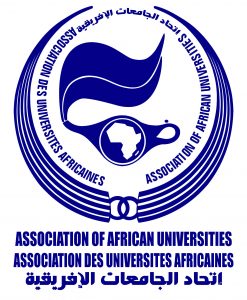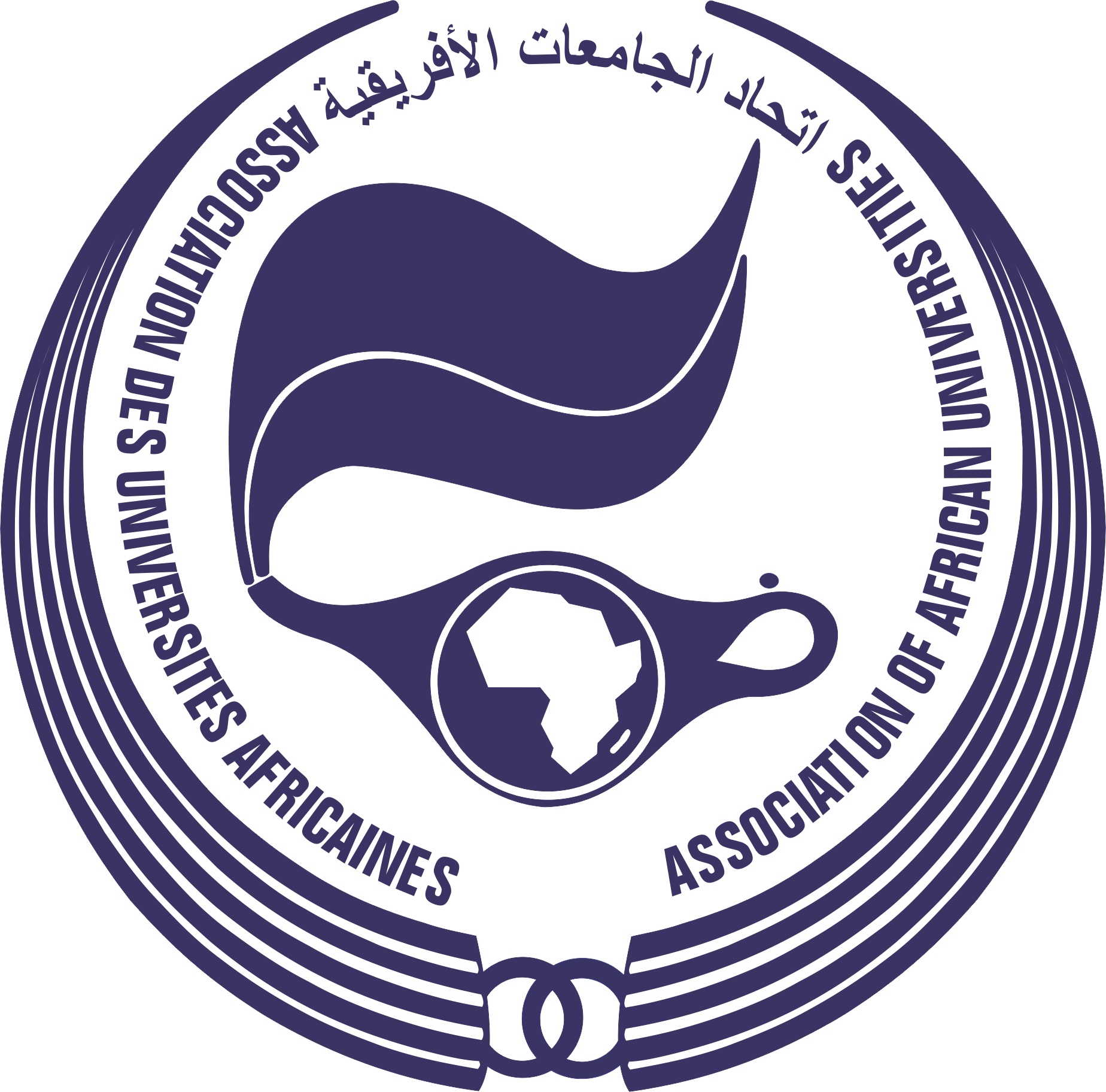
Vision
To be the leading advocate for higher education in Africa, with the capacity to provide support for its member institutions in meeting national, continental and global needs.Mission
To enhance the quality and relevance of higher education in Africa and strengthen its contribution to Africa’s development.Our Strategic Priorities
- Favourable Policy Environment:
- Strengthening Institutional Capacity of Stakeholders:
- Promoting Harmonization, Standardization for Competitiveness and Collaboration:
- Resource Mobilization for Sustainability:
The AAU will lead dialogue and policy debates around key issues in African higher education and promote the role of universities in sustainable development
The AAU will strengthen the institutional capacity of key stakeholders
The AAU will promote harmonization and standardization in order to enhance competitiveness and inter-institutional collaboration and networking
The AAU will explore other mechanisms for sustainable financing
Our History
The decision to create the AAU was taken at a meeting of Heads of African Institutions of Higher Education held for this purpose at the University of Khartoum, Sudan in September 1963. The International Association of Universities assisted in planning and making administrative arrangements for this meeting and was invited to cooperate with the Interim Committee that was set up to draft a constitution for the AAU.
A founding conference attended by the Heads or Senior representatives of 34 African Universities was held at Mohammed V University in Rabat, Morocco on 12th November 1967. At this meeting the constitution was adopted and the first officers and members of the AAU Executive Board were elected.
The second General Conference of the AAU was held at Lovanium University in Kinshasa in November 1969 and new officers and a new Executive Board were elected to take office in 1970. The Government of Ghana subsequently won the bid to host the AAU – and the AAU Secretariat has been hosted in Ghana since 1970. With an initial membership of 34, the Association now has over 360 members, cutting across the language and other divides.
The Association has provided a platform for research, reflection, consultation, debates, co-operation and collaboration on issues pertaining to higher education. It has provided a range of services to its members and served African higher education in a variety of ways. It has established and increased its role in the five sub-regions of Africa and is thus able, at reasonable notice, to assemble teams of experts in relevant fields from the sub-regions.
The Association possesses a unique capacity to convene higher education institutional leaders and policy-makers from all parts of the continent and on key issues related to African higher education and development, as demonstrated in the WTO/GATS workshop held in Ghana in April 2004. In addition, the Association provides leadership in the identification of emerging issues and support for debating them and facilitating appropriate follow-up action by its members, partners and other stakeholders.
A founding conference attended by the Heads or Senior representatives of 34 African Universities was held at Mohammed V University in Rabat, Morocco on 12th November 1967. At this meeting the constitution was adopted and the first officers and members of the AAU Executive Board were elected.
The second General Conference of the AAU was held at Lovanium University in Kinshasa in November 1969 and new officers and a new Executive Board were elected to take office in 1970. The Government of Ghana subsequently won the bid to host the AAU – and the AAU Secretariat has been hosted in Ghana since 1970. With an initial membership of 34, the Association now has over 360 members, cutting across the language and other divides.
The Association has provided a platform for research, reflection, consultation, debates, co-operation and collaboration on issues pertaining to higher education. It has provided a range of services to its members and served African higher education in a variety of ways. It has established and increased its role in the five sub-regions of Africa and is thus able, at reasonable notice, to assemble teams of experts in relevant fields from the sub-regions.
The Association possesses a unique capacity to convene higher education institutional leaders and policy-makers from all parts of the continent and on key issues related to African higher education and development, as demonstrated in the WTO/GATS workshop held in Ghana in April 2004. In addition, the Association provides leadership in the identification of emerging issues and support for debating them and facilitating appropriate follow-up action by its members, partners and other stakeholders.
The Pioneering Members of the AAU
Membership of the AAU is open to universities and other institutions of higher education in Africa, as well as organisations and networks whose members are universities or institutions which engage in supporting universities. At the time of its inauguration, there were forty-six (46) institutions of higher learning in Africa that qualified for membership, 34 were present at the inauguration and membership rose to 38 in 1968. All the 46 institutions had become members of the AAU five years after its formation.
The 34 pioneer institutions at its inauguration were:
The 34 pioneer institutions at its inauguration were:
- University of Algiers, Algeria
- Université Officielle de Bujumbura (Université du Burundi), Burundi
- Université Fédéral du Cameroun (Université de Yaoundé), Cameroon
- Université Nationale du Zaire (made up of Official University of Lubumbashi and Free University of Kisangani), Congo DR
- University of Lovanium, Kinshasa, Congo DR
- Ain Shams University, Egypt
- Al-Azhar University, Egypt
- Alexandria University, Egypt
- University of Cairo, Egypt
- University College of Addis Ababa (Haile Selassie I University/Addis Ababa University), Ethiopia
- Kwame Nkrumah University of Science and Technology, Ghana
- University of Cape Coast, Ghana
- University of Ghana, Ghana
- University of Abidjan, Ivory Coast
- University of College, Nairobi, Kenya
- Cuttington College (Cuttington University), Liberia
- University of Liberia, Liberia
- University of Libya (later divided to University of Benghazi and University of Tripoli), Libya
- Universite de Madagascar (University of Antananarivo), Madagascar
- Mohammed V University (University of Rabat), Morocco
- The University of al-Qarawiyyin, Morocco
- Ahmadu Bello University, Zaria, Nigeria
- University of Ibadan, Nigeria
- University of Ife (Obafemi Awolowo University), Nigeria
- University of Lagos, Nigeria
- University of Nigeria, Nsukka, Nigeria
- Universite Nationale du Rwanda, Rwanda
- Universite de Dakar (Université Cheikh Anta Diop), Sénégal
- Fourah Bay College (University of Sierra Leone), Sierra Leone
- Njala University, Sierra Leone
- University of Khartoum, Sudan
- University of Dar es Salaam, Tanzania
- Universite de Tunis, Tunisia
- Makerere University, Uganda
Our Strategic Plan
The AAU’S first Strategic Plan, covering the period 2003-2010, was developed and approved at the COREVIP meeting held in Mauritius in 2003. The formulation of the second AAU 2011-2015 Strategic Plan followed a bottom-up and participatory process that provided an opportunity to assess the impact and consolidate the achievements of the first Strategic Plan. A review of 2003-2010 plan led to the identification of unfinished business and goals that guided the formulation of the 2011-2015 Strategic Plan. After the expiry of the 2016-2020 strategic plan, AAU’s fourth strategic plan for 2020-2025 has been approved by the AAU Governing Board. The AAU's fifth strategic plan for 2024 - 2030 has been approved by the AAU Governing Board.Our Core Values
- Transparency and Accountability
- Equity and Inclusiveness
- Excellence and Professionalism
- Responsiveness
- Sustainability
- Teamwork and Collegiality
How AAU is funded
AAU is funded through:- Membership subscription fees;
- Income from services provided and sales of publications;
- Subventions from the African Union and African governments;
- Grants from development partner agencies;
- Capital investment fund and possibly an endowment fund (under consideration).
Our Objectives
- Promote interchange, contact and cooperation among universities and other institutions of higher education in Africa;
- Collect, classify and disseminate information on higher education and research, particularly in Africa;
- Promote cooperation among African higher education institutions in curriculum development, post graduate training, research, quality assurance, recognition of qualifications, the determination of equivalence of degrees, and other matters of special policy or practical interest to African higher education;
- Encourage and empower members of the Association to address developmental challenges and become an effective voice in national, regional and global higher education discourse;
- Study and make known the educational and related needs of African universities and other institutions of higher education and, as far as practicable, co-ordinate the means whereby those needs may be met;
- Contribute to the improvement of leadership, institutional management and the policy environment of African higher education; and
- Organise, encourage and support public fora for information dissemination and exchange and policy dialogue on issues of higher education.

Useful Downloads
AAU Strategic Plan
COREVIP and GENERAL CONFERENCE Documents
Conference Report – AAU COREVIP 2023
Selected Papers – AAU 15th General Conference
Rapporteur General's Report – AAU 15th General Conference
Selected Papers – AAU 14th General Conference
COREVIP 2019 Selected Papers
2019 COREVIP Communique
AAU COREVIP 2019 Rapporteur Generals Report
AAU 2017 General Conference Rapporteur Generals Report
COREVIP 2015 Conference Report
COREVIP 2015 Selected Papers
Selected Papers – AAU 15th General Conference
Rapporteur General's Report – AAU 15th General Conference
Selected Papers – AAU 14th General Conference
COREVIP 2019 Selected Papers
2019 COREVIP Communique
AAU COREVIP 2019 Rapporteur Generals Report
AAU 2017 General Conference Rapporteur Generals Report
COREVIP 2015 Conference Report
COREVIP 2015 Selected Papers
